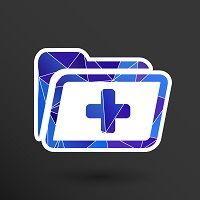- Revenue Cycle Management
- COVID-19
- Reimbursement
- Diabetes Awareness Month
- Risk Management
- Patient Retention
- Staffing
- Medical Economics® 100th Anniversary
- Coding and documentation
- Business of Endocrinology
- Telehealth
- Physicians Financial News
- Cybersecurity
- Cardiovascular Clinical Consult
- Locum Tenens, brought to you by LocumLife®
- Weight Management
- Business of Women's Health
- Practice Efficiency
- Finance and Wealth
- EHRs
- Remote Patient Monitoring
- Sponsored Webinars
- Medical Technology
- Billing and collections
- Acute Pain Management
- Exclusive Content
- Value-based Care
- Business of Pediatrics
- Concierge Medicine 2.0 by Castle Connolly Private Health Partners
- Practice Growth
- Concierge Medicine
- Business of Cardiology
- Implementing the Topcon Ocular Telehealth Platform
- Malpractice
- Influenza
- Sexual Health
- Chronic Conditions
- Technology
- Legal and Policy
- Money
- Opinion
- Vaccines
- Practice Management
- Patient Relations
- Careers
How to Interpret the Data on the Dashboard
The era of Big Data in healthcare provides many opportunities. The problem? Most physicians aren't equipped to meaningfully interpret the data.

Supposedly, the single biggest fear people have is speaking in public. For some, it's math. Others chose their courses in college by going to the book store and measuring the thickness of the paperbacks they would have to read in the course. Russian literature never made the cut. Tolstoy and Dostoyevsky would have to wait for a beach vacation, sitting by the pool bar, many years later.
Big data is presenting us with a somewhat similar challenge. Most practicing doctors, unless they have a MPH or an interest in biostatistics, have a rudimentary understanding of how to interpret data or interpret the medical literature. This video offers a short primer, if you missed the class:
Now, as mathematics and data science becomes more important than organic chemistry, doctors are being asked to make sense of the data on the dashboard. Most, based on their knowledge, skills, and attitudes, will flunk the final exam but pass the course and patients will be the ones who suffer.
As the gap between the data and the doctor gets wider and more complicated, we need a strategy to bridge it so practitioners can use actionable information to treat the patient in front of them, or, more commonly, on the screen in front of them as screen time with a customer becomes more commonplace than face time with a patient. Here are some suggestions:
1. Mandatory courses and demonstrated competencies in health data science in medical school and residency
2. Integrate data scientists into the care team
3. Better decision support and APIs for EMRs
4. Educational programs helping doctors and other providers become better consumers of medical data and information
5. Programs in digital health entrepreneurship
6. Academic-industry knowledge exchange programs
7. More money to support research in how data misinterpretation can be harmful to your health
8. Alternative, non-clinical career pathways for medical students who have little or no intention of practicing medicine for very long anyway
9. Faculty recruitment and endowed professorships to replace us old f*rts who no way, no how will learn all this new-fangled deep intelligence stuff
10. An XPRIZE for health data science
Imagine yourself as an interviewer at a medical school interview. At the end, you ask the applicant, "So, do you have any further questions." The applicant responds, "Will the course have any math?" That was easy.
